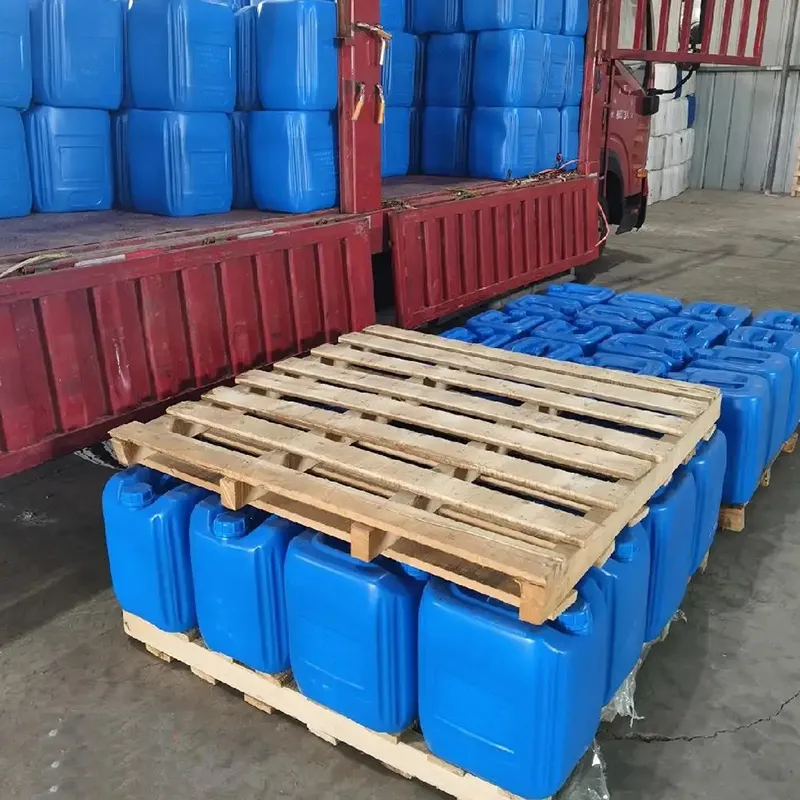
Exploring the Role of Antioxidant Food Additives in Enhancing Food Preservation and Quality
Antioxidant Food Additives Preserving Freshness and Health
In the modern food industry, the quest for longer shelf life, enhanced flavors, and improved nutritional value has led to the widespread use of food additives. Among these, antioxidant food additives play a critical role in preserving the quality of food products. Antioxidants are substances that can prevent or slow down the oxidation process, a chemical reaction that can produce free radicals, leading to food spoilage and a detrimental impact on health.
Understanding Antioxidants
Antioxidants are naturally occurring compounds found in many fruits, vegetables, and other plant-based foods. They neutralize free radicals, which are unstable molecules that can damage cells and contribute to aging and various diseases, including cancer, diabetes, and heart disease. Common natural antioxidants include vitamins C and E, selenium, and flavonoids. However, in the food industry, both natural and synthetic antioxidants are used to enhance food preservation.
The Role of Antioxidant Food Additives
Antioxidant food additives are employed to prolong the shelf life of products by inhibiting oxidation. This process prevents rancidity in oils and fats, discoloration in fruits and vegetables, and preserves the texture and flavor of processed foods. Well-known antioxidant additives include BHT (butylated hydroxytoluene), BHA (butylated hydroxyanisole), and tocopherols (Vitamin E). These substances are added in specific concentrations to ensure that food safety is maintained while maximizing freshness and quality.
Types of Antioxidant Additives
1. Synthetic Antioxidants Compounds like BHT and BHA are widely used due to their effectiveness and low cost. They are primarily used in the preservation of packaged foods, snacks, and fatty foods. However, the safety of these synthetic additives has come under scrutiny due to potential health risks associated with their long-term consumption. While they are generally recognized as safe in regulated amounts, ongoing research continues to explore their effects on human health.
antioxidant food additives

2. Natural Antioxidants With rising consumer awareness regarding health and wellness, there is a growing trend toward natural antioxidants derived from plant sources. Common natural antioxidants used in food include rosemary extract, green tea extract, and citrus bioflavonoids. These additives are favored for their perceived health benefits and lower risk of adverse effects compared to synthetic alternatives.
Health Benefits and Concerns
While antioxidant food additives serve important functions in food preservation, there are also health implications worth considering. Some research suggests that antioxidants can help reduce the risk of chronic diseases, support the immune system, and even improve overall well-being. However, the balance of antioxidant consumption is crucial. An excessive intake of antioxidant supplements, for example, may potentially lead to harmful effects, including interference with natural oxidative processes in the body.
The controversy surrounding synthetic additives has led many consumers to prefer products labeled as “all-natural” or “free from artificial additives.” This demand has prompted food manufacturers to seek alternative preservation methods, such as using natural extracts and other innovative approaches to extend shelf life without compromising safety or nutrition.
Regulatory Oversight
In most countries, the use of antioxidant food additives is regulated by food safety authorities to ensure that they are used safely and effectively. Regulatory agencies, such as the FDA in the United States and the EFSA in the European Union, conduct rigorous assessments of these substances before they are approved for use in food products. The established acceptable daily intake (ADI) levels help safeguard consumers, balancing the benefits of food preservation against potential health risks.
Conclusion
Antioxidant food additives play a vital role in modern food preservation, offering benefits that extend beyond shelf life. They contribute significantly to food safety, quality, and nutritional value. As consumer preferences continue to shift toward natural ingredients, the food industry will likely adapt, focusing on incorporating safe, effective antioxidant solutions that align with health-conscious trends. Understanding the function and implications of these additives enables consumers to make informed choices in their diets, promoting both health and well-being in a world where food quality remains paramount.
-
Understanding Synthetic Rubber OptionsNewsApr.27,2025
-
Trichloroisocyanuric Acid: Essential for Clean and Safe WaterNewsApr.27,2025
-
Sodium Dichloroisocyanurate: Key to Safe Water TreatmentNewsApr.27,2025
-
Sodium Acid Pyrophosphate: Essential in Modern Food ProcessingNewsApr.27,2025
-
Essential Water Treatment ChemicalsNewsApr.27,2025
-
Denatured Alcohol and Its Industrial UsesNewsApr.27,2025
-
The Versatile Uses of Sodium BicarbonateNewsApr.24,2025
Hebei Tenger Chemical Technology Co., Ltd. focuses on the chemical industry and is committed to the export service of chemical raw materials.
-

view more DiethanolisopropanolamineIn the ever-growing field of chemical solutions, diethanolisopropanolamine (DEIPA) stands out as a versatile and important compound. Due to its unique chemical structure and properties, DEIPA is of interest to various industries including construction, personal care, and agriculture. -

view more TriisopropanolamineTriisopropanolamine (TIPA) alkanol amine substance, is a kind of alcohol amine compound with amino and alcohol hydroxyl, and because of its molecules contains both amino and hydroxyl. -

view more Tetramethyl Thiuram DisulfideTetramethyl thiuram disulfide, also known as TMTD, is a white to light-yellow powder with a distinct sulfur-like odor. It is soluble in organic solvents such as benzene, acetone, and ethyl acetate, making it highly versatile for use in different formulations. TMTD is known for its excellent vulcanization acceleration properties, which makes it a key ingredient in the production of rubber products. Additionally, it acts as an effective fungicide and bactericide, making it valuable in agricultural applications. Its high purity and stability ensure consistent performance, making it a preferred choice for manufacturers across various industries.











